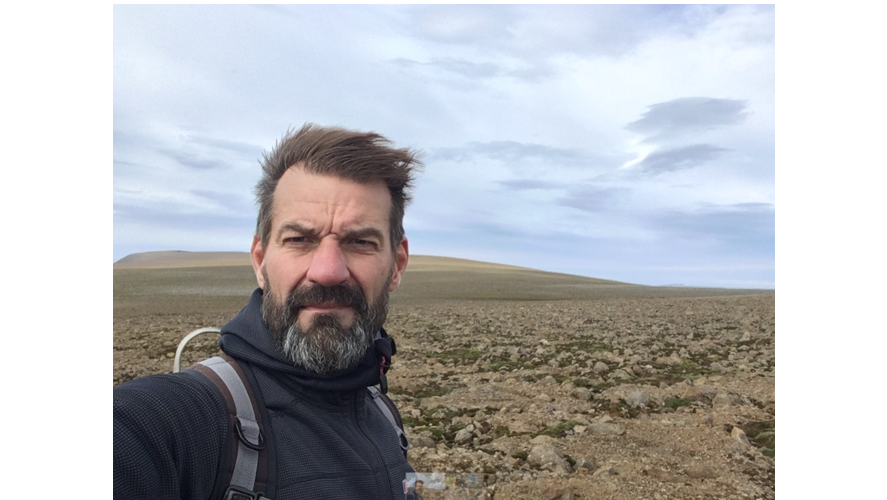Thoughts from influential nature conservationists…
Steve Carver
Who are you and what have you done in nature conservation?
My name is Steve Carver and I’m Professor of Rewilding and Wilderness Science in the School of Geography, University of Leeds where I’ve worked the last 30 odd years. It’s a long time in one place but you could say I’ve been busy in the broad field of ‘nature conservation’ particularly in developing robust approaches to mapping wilderness areas to aid decision making regarding their protection. I remember helping set up the Wildland Network in the early noughties which was successful in getting wild land and rewilding onto the UK conservation agenda. I then set up the Wildland Research Institute www.wildlandresearch.org at Leeds to provide mapping and policy advice helped by many people but particularly my good friends Mark Fisher and the late Alison Parfitt. I’m now Co-Chair of the IUCN Commission on Ecosystem Management (CEM) Rewilding Thematic Group along with Prof Ian Convery at the University of Cumbria. Together with a core group of researchers and practitioners we have established a global definition of rewilding and a set of guiding principles. These are currently being written into the IUCN Guidelines on Rewilding and will be launched at the World Conservation Congress in October 2025.
What have been two career highlights?
Just two? Tricky choice but firstly I’d have to go with having my GIS methodology for mapping wildness being used by the Scottish government to map and define wild land areas in Scotland. While not official designations these are being used to inform policy and planning decisions. The method has since been used to map wilderness in Europe and modified to map wilderness character in the USA for the National Park Service. My second choice would be working closely with a large and wonderful group of people to pin down the global definition of rewilding and develop core guidelines. This is (hopefully) about to come to fruition with the published IUCN Guidelines.
The most influential person or event or book in your career…?
Can I choose more? There are so many people to which I owe a huge debt of gratitude for shaping the way I think about nature and conservation, but I’ll name drop three people: (1) Mark Fisher for making me see the absurdity of conservation dogma such as micro-management of habitats and species, obsession with diversity over naturalness, biases towards species dependent on livestock grazing in culturally mediated landscapes, management for favourable conservation status instead of natural succession, etc. and just to realise the intrinsic value of self-willed nature, (2) the late Alison Parfitt for being the calm voice of reason and mindfulness, and (3) Alan Watson-Featherstone for his vision and humility. The book is easy, Aldo Leopold’s A Sand County Almanac. If you’ve not read it already, get yourself a copy. Read it and then pass it on to a friend. Possibly the most beautiful book on landscape ecology and nature ever written.
How do you define nature conservation?
How long is a piece of string? It pretty much depends on who you are and whether you say ‘conservation’ is for us or for nature, and indeed whether you place us as humans under the ‘nature’ banner. Personally, I believe nature conservation should emphasise the rights of wild nature over humanity or at least try to rebalance the scales. In other words, “it ain’t all about us you know!”
What’s the good news about wildlife and nature at present?
Rewilding! The speed at which the idea and practice of rewilding has developed and taken hold in the UK and across the world is cause for optimism. We can (and must) turn the ship around and ‘bend the curve’ of habitat loss and biodiversity declines. Rewilding is one way this can be achieved, so there’s good cause for optimism.

Beyond the obvious of habitat loss and species decline, what’s your greatest concern in UK nature conservation at present?
Rewilding! I know I just said that, but its popularity is also its potential downfall. Too many people are misinterpreting the ideas and practice of rewilding (wilfully or otherwise) when jumping on the rewilding bandwagon. This potentially waters down the term and its ability to articulate and implement the changes we need to make. I know money makes the world go round, but if you’re into rewilding to make a quick buck, you’re not in it for the right reasons. Green financiers and biodiversity banking magnates take note.
If you had a limited budget on nature conservation in Britain, what would you prioritise and why?
Education. Adults and kids. There’s a deficit in awareness and connection to wild nature that leads to lack of interest. I’d like to explore how that connection can be reestablished and strengthened. I think the GCSE in Natural History is a good idea, if it were compulsory. It also needs to be written by carefully selected people so as not to slavishly trot out the same old conservation dogma that leaves us in the situation we’re currently in.
How do you feel about your input to the subject – what if anything has it achieved and would you do it differently if starting again today?
As an academic and developer of approaches and evidence-based policy documents I sometimes feel like I haven’t achieved very much! I can’t point to anything physical such as a species saved or reintroduced, a woodland created, or river restored. Everything I’ve done is virtual. Words and maps. OK, some of those have made a difference. Our mapping work in China is being used by the Chinese government to establish the world’s largest National Park network at over 1 million square kilometres. That’s huge, but it still seems intangible somehow. If I had my time over again, I’m guessing I’d do the same such as that’s where my skills are, but I’d like to do more on-the-ground, dirt under the fingernails stuff. Perhaps more activism too?
Anything else you’d like to say..?
We set up Wildland Research Limited during the first Covid lockdown to provide wilderness mapping services to those who need it. Our moto is “Will map for food” which is short for saying we’re doing it to make a difference, not necessarily to make money, though we do have to cover our costs. Need a map? You know where to come! www.wildlandresearch.com


